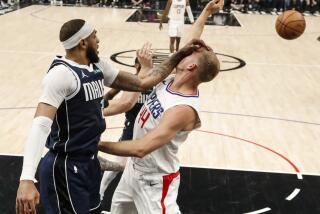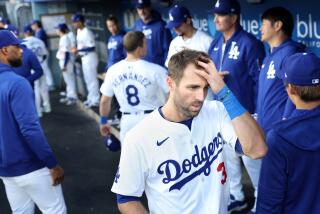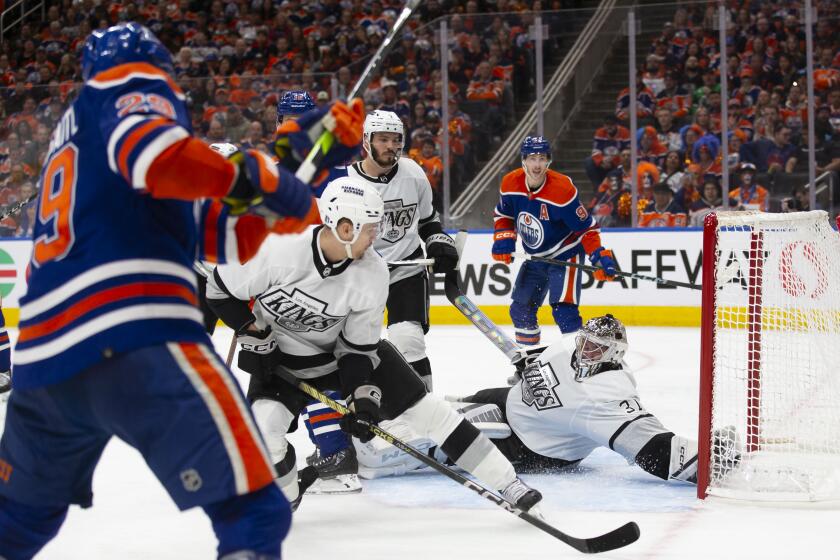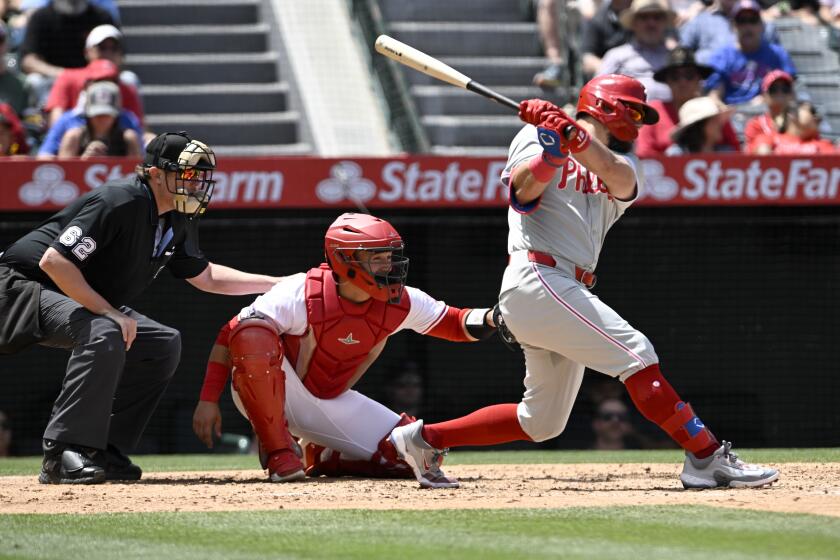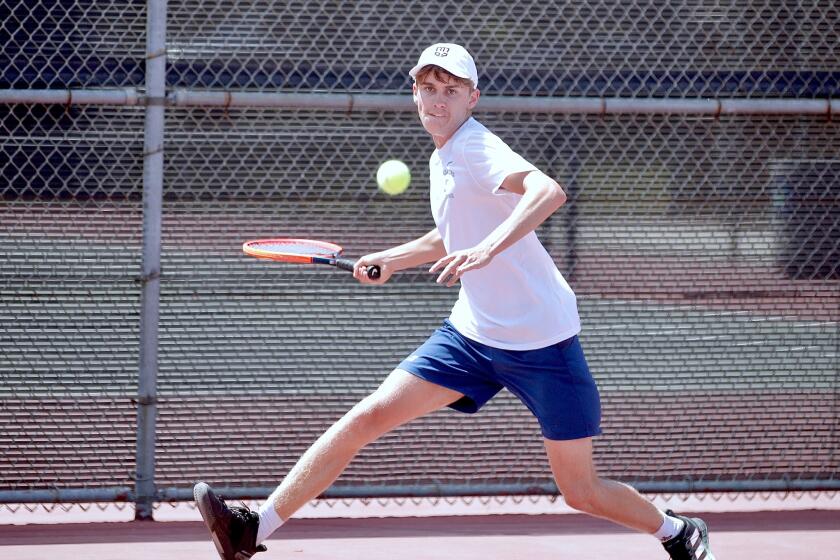Public Money, Secret Plans
Talked to NFL Commissioner Paul Tagliabue on Thursday. He was in Los Angeles. Didn’t sound happy. Well, never sounds happy. Claimed it wasn’t a Hawaii stopover, travel snafu or call to appear on “Arliss.”
Nobody was supposed to know he was here. The NFL’s version of “L.A. Confidential.” Kim Basinger and Paul Tagliabue? Anyway, all very hush-hush.
The limos dropped them off somewhere in Brentwood. In a meeting so secret that Eli Broad and Michael Ovitz were warned earlier not to discuss it, plans to secure public funds for a new football stadium and parking were being formulated.
You have permission now to scoff or laugh. Your choice.
Tagliabue, however, sounded encouraged. He also could have been clearing his throat.
Broad and Ron Burkle, the billionaires, were there with a few millionaires, such as Ovitz and Ed Roski. So was Bill Chadwick, raising the question: Who is Bill Chadwick?
“I’ve exhibited some leadership which has given the people an opportunity to come together to focus on the task at hand,” Chadwick said.
Gov. Gray Davis asked Chadwick, a lawyer and investment banker, to represent the state in its negotiations with the NFL to bring football back to Los Angeles.
This is the same Gov. Gray Davis who has said there will be no public funds used for the return of football to Los Angeles. Chadwick and Davis apparently don’t talk. Chadwick says if the public gets a return on its investment of public funds, then public funds could be used to help the NFL. Tagliabue likes the way Chadwick talks.
“He’s shown he can take the lead and manage the process, keep it focused,” Tagliabue said.
To get public funds, Chadwick and the NFL agreed Thursday, the public must be kept in the dark. Thirty minutes of the meeting were dedicated to plotting strategy to keep developments away from the media in the coming weeks so the public will not become alarmed about losing tax money.
Another clandestine meeting has been called for next week.
“If we can all put together a package that’s positive economically and demonstrate that dollars can come back from our investment--even if it’s in income-tax money generated from 40 guys playing for the team who live outside the state, then there may very well be some public contributions,” Chadwick said. “If we can demonstrate a positive impact on the community in new jobs, better access to Exposition Park, better parking for the museums, then I think people would care.”
For now, the people need not know.
“We’re trying to deal with a very complex project involving hundreds of millions of dollars and a planning process that takes many months if not years,” Tagliabue said.
If Broad and Ovitz have expressed a willingness to finance a stadium, and in Broad’s case, spend $67 million on parking, what’s wrong with their plans?
“Why do we have to talk about what’s wrong?” Tagliabue said. “Why not be positive?”
Nothing much has happened in the five years since the Rams and Raiders left. Positive about that.
Why hasn’t the NFL moved someone here to learn the lay of the land and the way people feel about the return of the NFL?
“It’s not necessary,” Tagliabue said. “We’ve been successful in 23 stadium projects in the last decade while working from New York.”
Let’s be positive: 23-1 is not a bad record.
“Sure it’s an uphill battle,” Chadwick said. “My role is to be open-minded. I want the city, state and county to decide whether this is a good thing for us. We have to have the choice, but there’s no reason to lose it by default by not being organized. We need to see if there is a compelling case to be made [to secure public funds for the return of football].”
NFL owners will meet July 28 in Chicago for a progress report from Chadwick, who presumably will not keep it secret from them.
More to Read
Get our high school sports newsletter
Prep Rally is devoted to the SoCal high school sports experience, bringing you scores, stories and a behind-the-scenes look at what makes prep sports so popular.
You may occasionally receive promotional content from the Los Angeles Times.

